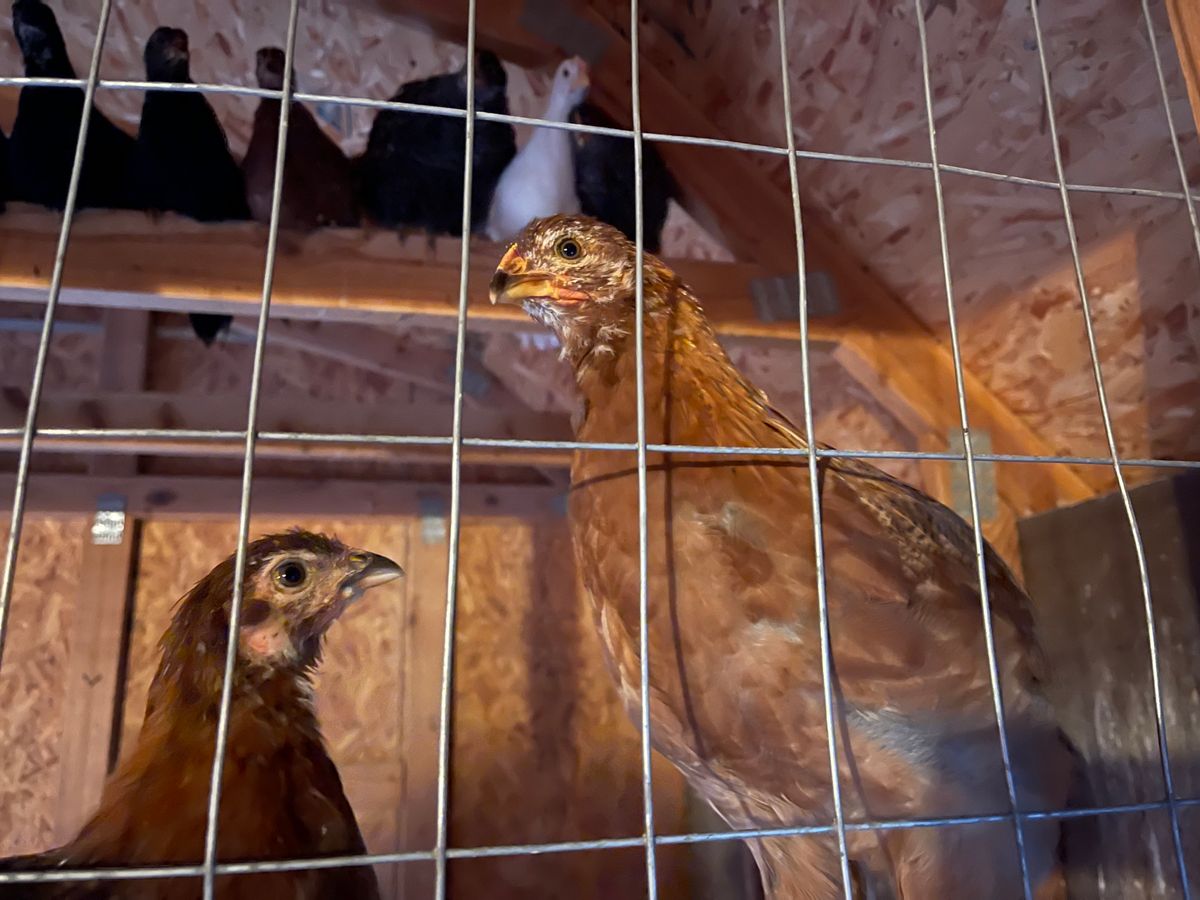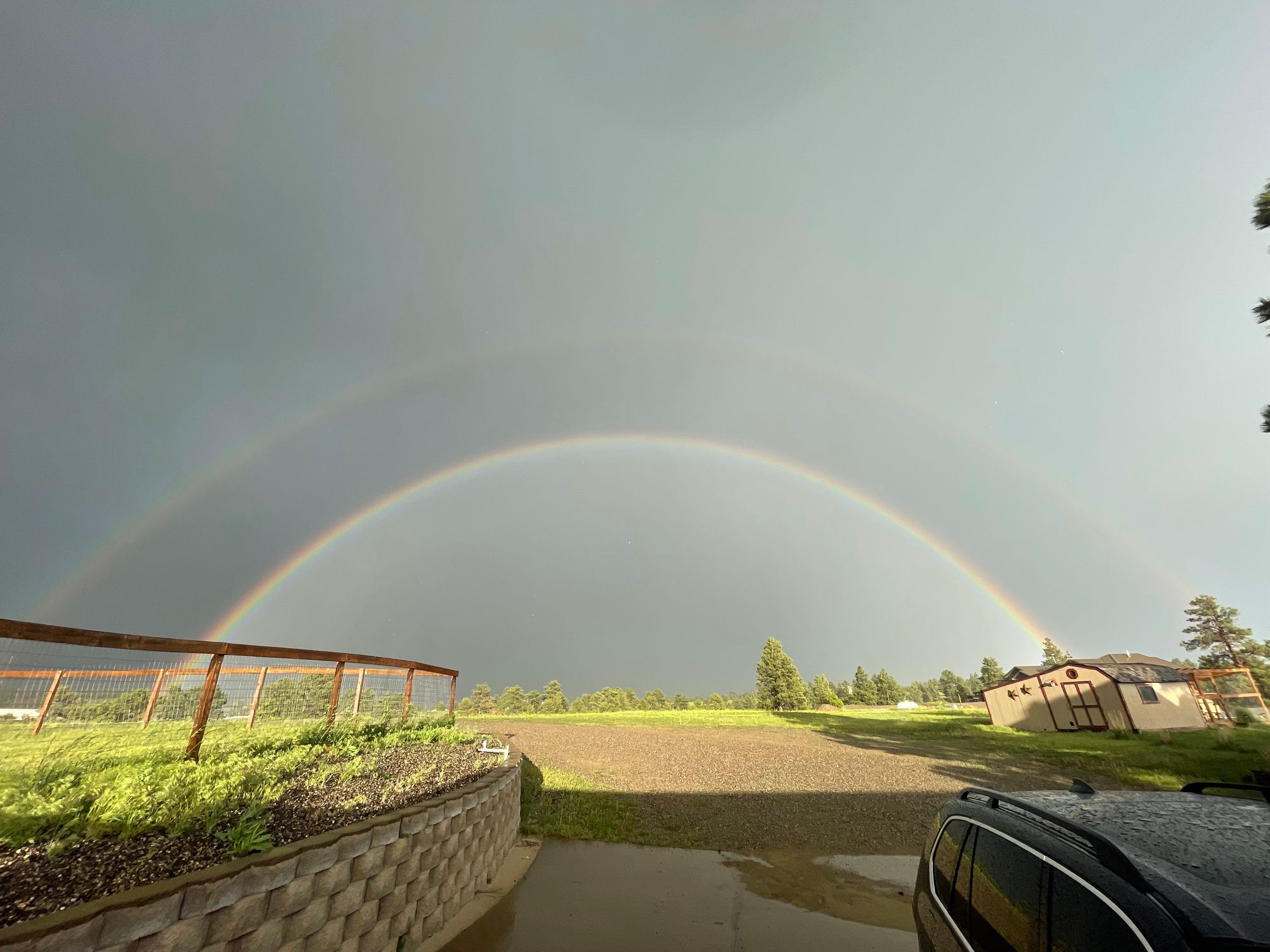What Happens When An Engineer Starts A Hobby Farm
As an ode to independence day, let's talk about a different tech lifestyle. A lifestyle without suburbs or tiny apartments.

A funny thing happened back in 2020. Thousands of people in tech flocked from large cities like San Francisco, LA, and New York, to more rural places like my state, Montana. Likely brought on by high living costs, coupled with flexible remote work policies, these people felt the freedom and push they needed to sell their homes and buy a home in a place they've never been to, sometimes even sight unseen.
This was the pull I had to stay in Montana many years ago. Not from tech exodus, but having spent time here, I couldn't see myself anywhere else. I had turned down countless job opportunities that would have had me move to places like Seattle, San Mateo, and New York, to opt for a lifestyle closer to nature, land, and family. Having worked for companies in New York, compared to companies in Montana, there has always been a genuine focus on family and a little bit of freedom in Montana. No, not the artificial, "we have unlimited PTO" policies. It's more real, more tangible. Fewer meetings, more autonomy, and more trust. When something goes wrong, it's not caught up in the process for months; it's resolved and made right.
Over the years this trust has enabled me to grow as an engineer, as a person, and as a father. Believe it or not, working for a smaller company with high trust prepared me to work in fast-growing, high-stress environments and absolutely thrive. This lifestyle has allowed me to grow much faster than I could have working for a company like Meta or Netflix. For that reason, along with others, I saw myself staying in Montana for a long time.

I lived in a ~2,600 sqft house in the suburbs of Montana's largest city. We bought the home around 8 or 9 years ago now, and adopted our Golden Retriever, Echo, to start our small family. During that time in the suburbs, something always felt off for our family. The lawn, sidewalks, neighbors, BBQs, and HOAs. We would go hiking, backpacking, and camping to disconnect from our day-to-day and fantasize about moving to the woods. We took up gardening in the summer in several raised beds and absolutely adored it.
Every engineer knows the feeling of being glued to code and solving problems all day, followed by that zombie-like feeling after calling it done for the day. Some of us take walks, others go to the gym, but all of us feel it at some point every week. We need some sort of activity to break us out of it. Mowing, walking, and saying hi to the neighbors all felt wrong. It didn't disconnect me or bring me a feeling of fulfillment. Community is nice, but it felt artificial.
After years of fantasizing about being somewhere else, and delaying because of pandemic booms, we decided 2023 was the year to conquer it. At the turn of the year, it became clear that timing wasn't our forte, as tech layoffs ramped up and my own company started talking "strategic alternatives", we knew that it would potentially be a shit show. And it was. More on that in a future article.
But between the start of the year and now, we were able to conquer our dreams: acquire land and move to the "woods". We knew we wanted fresh eggs, possibly brought on by pandemic shortage-fueled PTSD and the great egg shortage of 2023, and our property already had a run-down chicken coop. So, in a move that made complete sense to us then, we bought 15 laying hens. This was enough chickens to provide our family eggs and still have a bunch to sell to neighbors, friends, and the community. This small step was enough to begin a mini-farm business.
Fast forwarding, we got the chicks and raised them in a tub for 6 weeks before releasing them into the coop. During this time, I had never seen my child, wife, and even myself so engaged in something together. We were building family equity and living a dream. So, like any reasonable person, we decided that we would order 27 more chickens, bringing our total to 42 [the answer to life the universe, and everything]. These chickens were different, though, as they would be raised for 8-10 weeks and then processed for meat, whereas the laying hens would provide eggs for years.
I've started forming an incredible bond with the land and resources around me, along with the animals we are raising. It's an understanding that I didn't think I needed or even wanted. With this bond and sense of what it takes to bring everyday resources to families, I've also had a complete shift in mindset.
In engineering, we are often hired for our skills. These skills we have developed through experimentation, automation, and building. At the beginning of our careers, we tend to look at things through a lens of possibility, often blowing projects, features, and enhancements out of proportion. As we learn and evolve, most senior engineers turn from over-optimization and over-engineering and start to look through a more pragmatic lens. What does it take at a bare minimum to provide a solid foundation for a product while also delivering the MVP?
At least for me, this shift in work mindset often led to experimentation in my personal life, through means of side projects including software but also hardware, 3D printing, and woodworking. As we develop new skills, they are best developed through experimentation, which is why those with a high creative IQ will turn to side hustles later in their careers.
This was completely different as I began to learn agriculture. The stakes of mistakes in agriculture are high-cost, high loss, and dealing with the lives of animals that are being raised to fulfill a duty. Every resource we develop ourselves also comes with an associated price tag. If I make a $5,000 mansion coop and spend $1,000 in feed for laying hens, suddenly the price of eggs for the month has reached $6,000, making one egg cost around $30 that month. Startup costs are very real in farming, even hobby-style farming, and they are unavoidable. However, if I make a mistake through experimentation, I've lost a lot of return as laying hens take about 5 months to start laying eggs. That's 5 months of lost feed, energy, and time.
This is when I realized that agriculture is mostly math, time, and planning. It's about doing the best you can do with what you have through tried and true methods, rather than finding the best, newest solution and experimenting to find small improvements. This mindset extended to multiple parts of living on a homestead. As problems arose with the house that demanded time for long-term fixes, we had to settle on short-term fixes that would make sure we had time for caring for our high-value animals. Our family began to think about things we tackle week-by-week projects that saved us time and money vs. projects that would provide meager enjoyment.
This all accelerated my growth as a person, and I now understand that an engineering mindset cannot be applied to every part of my life. Nor should it. This is especially why I'm super excited to be experimenting with new technology, inside the scope of engineering.

If this introduction to our family mini-farm project was interesting, consider signing up as a member to stay up to date!